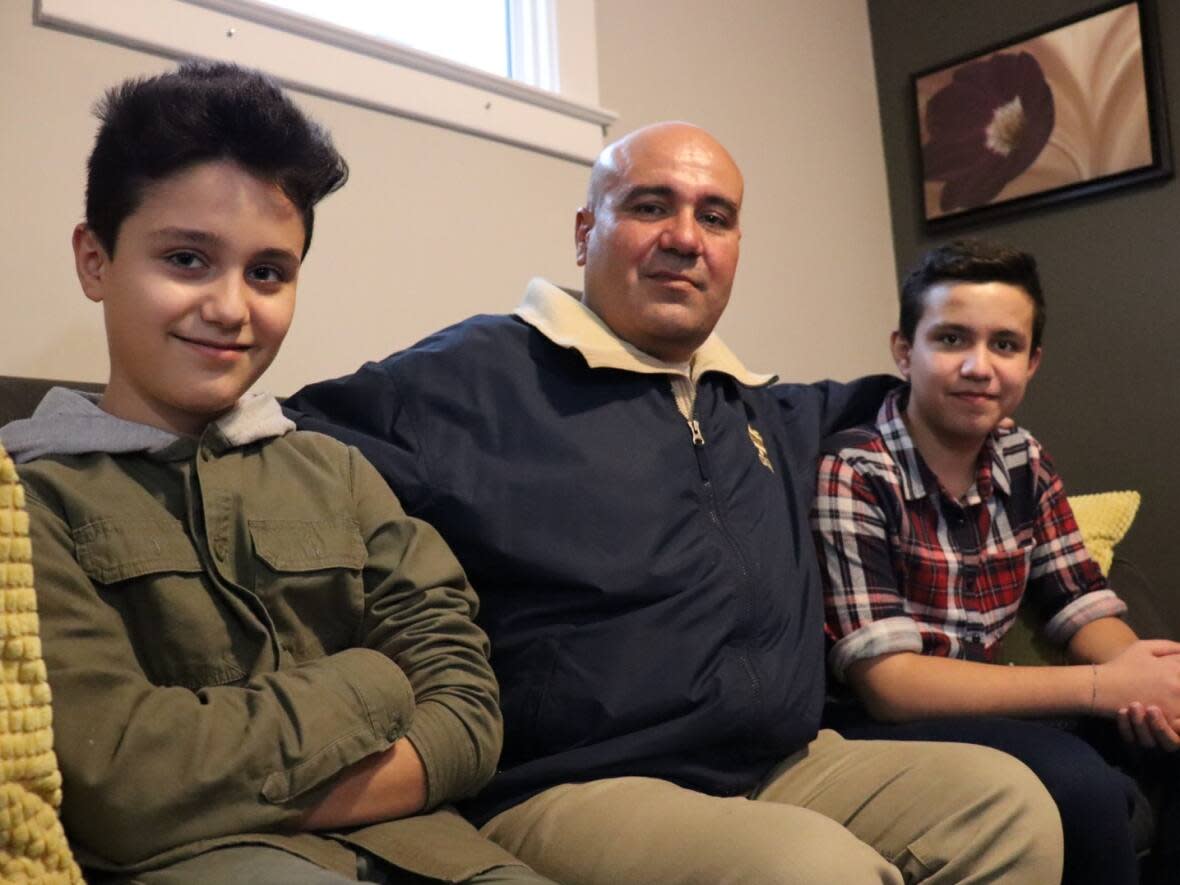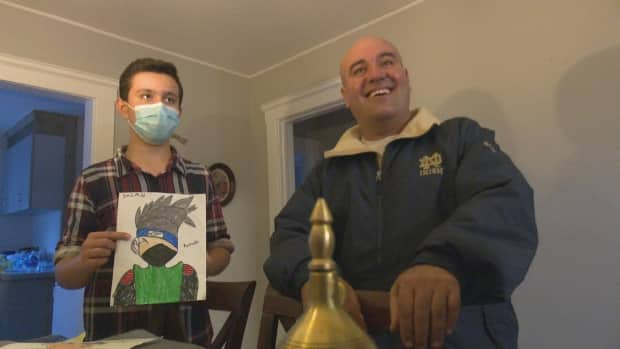This refugee family found safety in Windsor. It took months longer than they expected

After eight years of fleeing war and conflict in the middle east, Zakareia Sedi finally got the call that his family would be accepted as refugees in Canada — but their arrival was delayed for more than a year due to COVID-19.
"Getting to Canada, in my opinion, is winning the lottery," Sedi said through a translator.
"After all this waiting, when we received the news that we can go to Canada, we were so happy. I was feeling that I'm going to settle, be safe ... not fearing tomorrow."
A year and a half after getting accepted, Sedi, his wife Rudin Khalil and their two children, Hassan and Salahaldeen, finally arrived in Windsor.
And while they managed to eventually resettle, there are others who are still waiting.
The Sedis are some of a few hundred refugees who arrived in the Windsor area as of October this year. But since the pandemic, the region has welcomed far fewer than usual.
Data from Immigration, Refugees and Citizenship Canada (IRCC) shows that while 895 refugees arrived to the region in 2019 alone, only 675 have arrived since then.
And this drop isn't just happening in Windsor. A CBC News exclusive found that by the end of October Canada was only about halfway to its goal of welcoming 81,000 refugees by the end of 2021.
"It was quite a dramatic drop that we saw during the pandemic," said YMCA's VP of newcomer and community services Jacquie Rumiel about the number of newcomer clients they serviced.
Despite this, she says they weren't any less busy because of what she calls the "digital divide" that the pandemic created.
'Digital divide' challenge for newcomers
Many of the YMCA's clients, Rumiel said, needed help navigating the online world that everyone pivoted to when the pandemic hit.
"Suddenly with all community agencies pretty much transferring services online, so many newcomers were left behind," she said.
"[We held] one-on-one sessions to help people get online, apps on their phone, help with their children's [laptops] to help get their children online when all the children were home. So we really restructured everything we were doing to respond to the needs that were there in the community."

Not only that, but she said they were relied on to share public health updates on the pandemic and the vaccines.
In addition to this, Rumiel said clients struggled with their mental health due to lockdowns and few opportunities to connect with other community members.
Family understands uncertain feeling of those still waiting
For Sedi, the hard part wasn't arriving to Canada during a pandemic, it was the anxiety of waiting to get there.
"It was very difficult," Sedi said.
"If I picture myself [in Iraq] and I think of the people there who are still waiting, it is a really hard, hard feeling. You are staying there at the stage of the unknown, the stage of 'Ok am I going to get to Canada or no?'"
Since arriving, he said everything else has gone smoothly thanks to services like the Multicultural Council of Windsor.
Both of his children are in school and he's currently learning English so that he can eventually get a job.
"I feel very welcomed and very happy. [Windsor] is very beautiful," he said.
The one thing he said that's missing is his sister and her family, along with a good friend of his, who are still in the middle east — waiting for their chance to get resettled.


